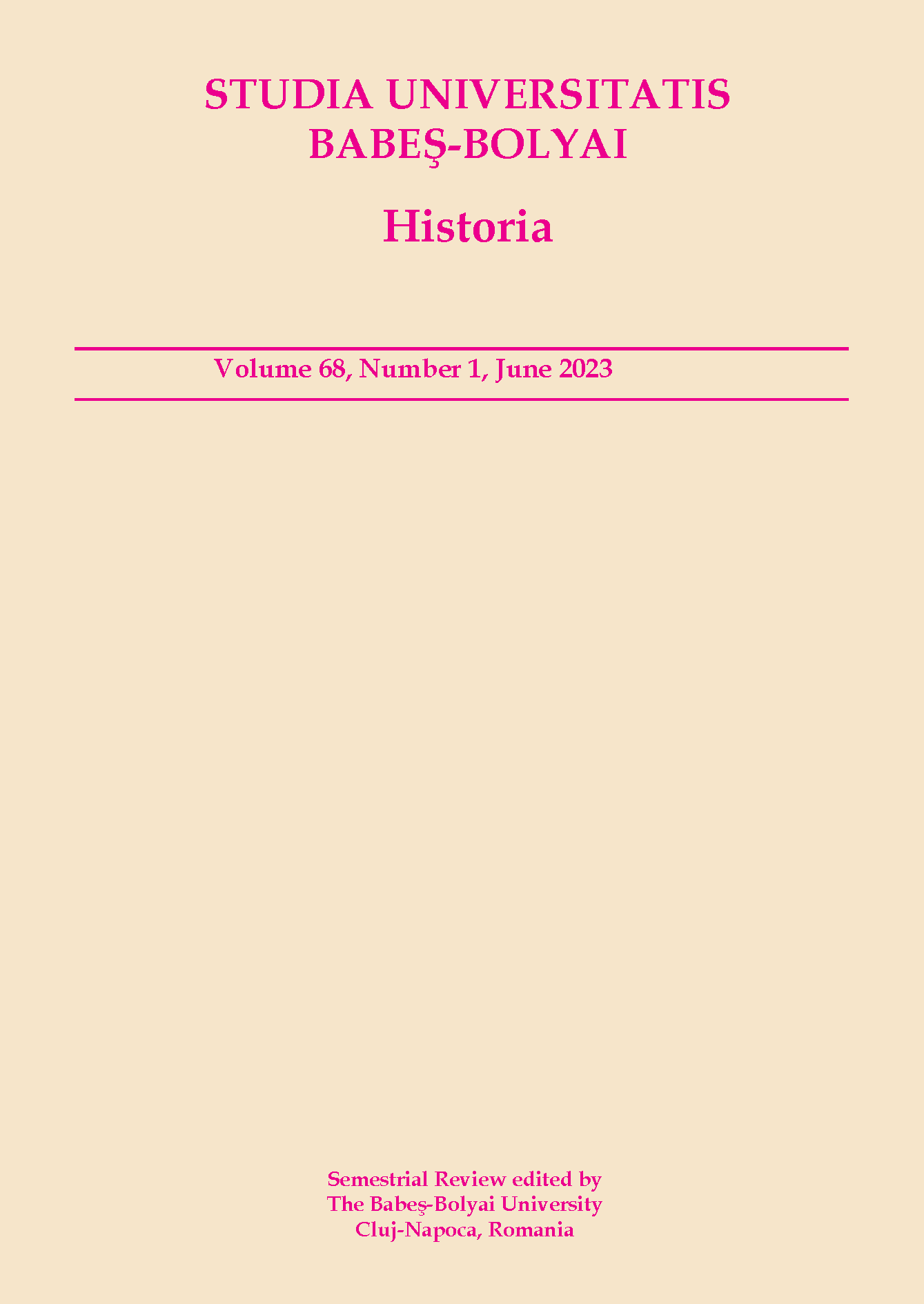Instances of Preaching in a Medieval Transylvanian Town. The Case of Cluj in the Century before the Reformation
DOI:
https://doi.org/10.24193/subbhist.2023.1.03Keywords:
medieval sermons, urban history, town preachers, mendicant orders, parish clergy, linguistic pluralityAbstract
Preaching was an essential component of the religious life during the Middle Ages, shaping the Christian identity and promoting the norms and decisions of the Church. In line with recent contributions that have drawn attention to Transylvanian expressions of medieval preaching, the present paper intends to examine its significance in the urban milieu prior to the Protestant Reformation, by exploring the case of Cluj (hu. Kolozsvár/ germ. Klausenburg). An important town of the region, it was inhabited by a mixed population of Hungarian- and German-speaking communities, whose pastoral care and access to the divine Word was facilitated by various religious institutions. Although the extant sources do not provide detailed accounts regarding specific sermons delivered in town, their actual contents and mise-en-scène, the present paper outlines the profile of the routine preaching activity, based on homiletic works that belonged to the secular and regular clergy of the town, as well as charters attesting their complementary or competing actions. The analysis reveals that homiletic concerns progressively increased from the beginning of the 15th century onwards, reaching a pinnacle in the decades prior to the adoption of the Reformation.
Rezumat: Predica a constituit o componentă esențială a vieții religioase pe parcursul Evului Mediu, contribuind la fasonarea identității creştine şi la diseminarea normelor şi deciziilor Bisericii. Pe urma unor contribuții istoriografice recente care au atras atenția asupra expresiilor transilvănene ale acestui fenomen medieval, prezentul studiu propune examinarea importanței predicării în ambianță urbană, înainte de Reformă, prin sondarea cazului oraşului Cluj (magh. Kolozsvár/ germ. Klausenburg). Unul dintre centrele urbane majore ale regiunii, Clujul se distingea printr-o populație mixtă, de saşi şi maghiari, a căror pastorație intra în grija mai multor instituții religioase. Cu toate că sursele păstrate nu dezvăluie detalii despre cuvântările omiletice rostite în oraş, despre conținutul sau punerea lor în scenă, lucrarea schițează profilul activității uzuale de predicare pe baza colecțiilor de predici care au aparținut clericilor seculari şi fraților cerşetori, precum şi a surselor documentare care atestă actiunile complementare sau concurente ale acestora. Analiza dezvăluie că preocupările pastorale şi omiletice au cunoscut o creştere progresivă în decursul secolului al XV-lea, atingând apogeul in deceniile imediat anterioare adoptării Reformei.
Cuvinte cheie: predica medievală, istorie urbană, predicatori, ordine mendicante, cler parochial, pluralitate lingvistică
Article: history; Received: 16.05.2023; Revised: 23.05.2023; Accepted: 10.06.2023; Available online: 30.06.2023.
Downloads
Published
How to Cite
Issue
Section
License
Copyright (c) 2023 Studia Universitatis Babeș-Bolyai Historia

This work is licensed under a Creative Commons Attribution-NonCommercial-NoDerivatives 4.0 International License.






